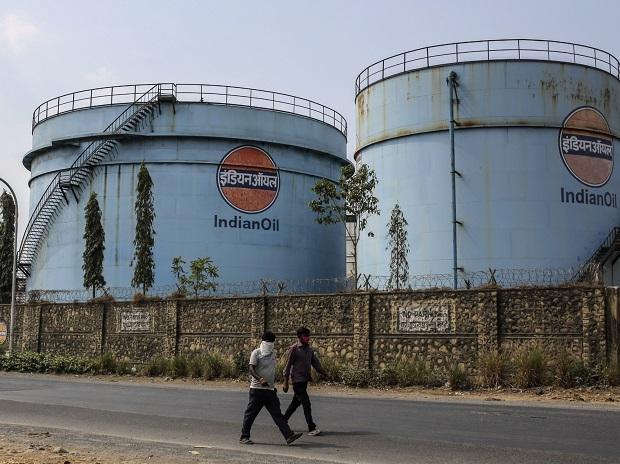Indian Oil plans to become ‘360-degree energy’ company, to invest Rs 4 trn
India’s top fuel retailer Indian Oil Corporation will invest over Rs 4 lakh crore in this decade to expand oil refining and petrochemical business as well as in energy transition projects as part of a plan to become a ‘360-degree energy company’, its chairman Shrikant Madhav Vaidya said on Friday.
IndianOil will invest Rs 1 lakh crore in expanding capacity to refine and turn crude oil into fuel and a staggering Rs 2.4 lakh crore in projects that will help it achieve net-zero carbon emissions from its operations. Another Rs 60,000 crore is planned to be invested in setting up a giant petrochemical complex at Paradip in Odisha.
These investments will help the company continue to meet the rising energy needs of a fast-expanding economy while also treading on the path of the energy transition, he told company shareholders at the annual general meeting.
Vaidya said the past year witnessed waves of volatility that rocked the global energy dynamics but IOC kept its promise of fuelling the nation with unwavering commitment.
For this, IOC is leveraging varied energy pathways that will establish it “as a 360-degree energy company,” he said. “We are well-aligned with the need to ensure equitable energy access and sustainable transition.”
The firm which controls over 40 per cent of India’s fuel market and is the largest oil refiner has set 2046 as the target date for net-zero carbon emissions.
“Our well-crafted blueprint, with a staggered investment plan of about Rs 2.4 lakh crore or USD 30 billion, will take us towards the net-zero destination,” he said.
These investments will be in producing green hydrogen to replace one currently used in refineries that come from fossil fuels, renewable energy capacity addition, biofuels, and carbon offsetting.
Its energy transition plans also include an EV charging network and infrastructure to enable electric vehicles to swap chargeable batteries.
While it navigates through the energy transition path, it is imperative that India strengthens its focus on the traditional fuel business, he said.
“The Indian economy is surging ahead, aiming for the USD 5 trillion-mark by 2025. Reflecting India’s robust economic growth, the latest outlook from the International Energy Agency has pegged India’s energy demand to go up from the current 5 million barrels per day (mbpd) to 7 mbpd by 2030, and about 9 mbpd by 2040,” he said.
Meeting this demand would require more investment in pumping crude oil from below ground or importing it from abroad, turning it into fuels like petrol and diesel at refineries, and taking them to nook-and-corner of the country through a well-oiled distribution network.
And the tumultuous geopolitical events that unfolded last year led to the rearrangement of the energy baskets of the developed economies, leaning towards conventional fuels. “Let me assure you that to ensure India’s energy security, we are strengthening the traditional energy avenues, as we shape the green energy vision,” he said.
“We are investing over Rs 1 lakh crore for expanding your company’s refining capacity by about 33 per cent to reach almost 107 million tonnes per annum soon,” he said.
The expansion includes a new 9-million tonnes-per-annum oil refinery at Nagapattinam in Tamil Nadu.
Alongside, it is pursuing petrochemical integration, which will help convert crude into chemicals that are building blocks for a variety of products ranging from plastics to paints and cosmetics.
“It can potentially offset business uncertainties and amplify the value of every hydrocarbon molecule,” he said.
IOC Board, he said, has accorded Stage-1 approval for the setting-up of Paradip petrochemical complex in Odisha at an estimated cost of over Rs 61,000 crore. This will be IOC’s single largest investment at a location.
The company is collaborating with Italy’s Snam to explore the possibility of converting the existing natural gas pipelines for hydrogen transportation.
Vaidya said the company continues to expand its retail network and has acquired sites to develop wayside amenities (WSA) on the Delhi-Mumbai expressway.
Also, the firm is expanding its offering of branded fuels. “Our 100 Octane petrol XP100 is now being offered at over 200 retail outlets, 95 Octane petrol XP95 is available at over 10,300 outlets, and the green diesel XtraGreen is being retailed at more than 5,600 outlets,” he said.
In LPG, it has launched a unique QR code-based ‘Track N Trace’ pilot initiative.
IndianOil is developing a 10 kilo tonnes per annum green hydrogen plant at Panipat Refinery, he said, adding the company is also setting up a Sustainable Aviation Fuel (or SAF) plant of 86.8 thousand tonnes per annum capacity at Panipat.
To support sustainable growth, the firm also plans to convert over 100 million PET bottles annually into uniforms for its on-ground teams, non-combat uniforms for the armed forces, and other stakeholders.
(Only the headline and picture of this report may have been reworked by the Business Standard staff; the rest of the content is auto-generated from a syndicated feed.)
